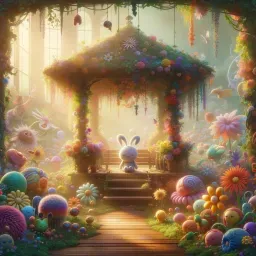You have to try. You have to care

0
0
0
0
- Meaning
- The meaning of this phrase centers on the dual necessity of effort ('try') and emotional involvement ('care'). Philosophically, it reflects existential ideas about authentic living and the human condition, highlighting that genuine engagement in life requires both action and empathy. Psychologically, it acknowledges that fear of failure or emotional detachment can be barriers to personal growth and fulfillment. Historically, concepts of personal effort and caring are foundational in various philosophical teachings, emphasizing that overcoming inertia and apathy are crucial for meaningful experiences.
- Allegory
- The image includes a figure by the lake symbolizing contemplation and the courage to take action, while the blossoming tree represents the nurturing aspect of caring. The serene lake reflects calmness and reflection, suggesting that taking time to think about our efforts and emotional connections is as important as the actions we take. The sunrise indicates new beginnings and opportunities, reinforcing the idea that with each day, we have the chance to try and to care anew.
- Applicability
- The phrase can be applied in many areas of daily life. In personal relationships, it encourages individuals to actively show care towards their loved ones. In professional life, it emphasizes the importance of putting in the effort and genuinely caring about one's work and colleagues. Ultimately, it reminds individuals that their actions and emotional investments can lead to deeper satisfaction and richer experiences.
- Impact
- This phrase has contributed to modern discussions around motivation and personal growth, often being cited in self-help books, workshops, and motivational speeches. It serves as a reminder that success and fulfillment are often contingent on one's willingness to engage and invest emotionally.
- Historical Context
- The origin of the phrase is difficult to pinpoint due to its general nature. It reflects contemporary self-help and motivational discourse which gained prominence in the late 20th century. It aligns with movements advocating for personal responsibility and emotional intelligence, capturing a mindset that encourages active participation in one's life.
- Criticisms
- Criticism may arise from the notion that simply trying or caring does not guarantee success or happiness. Some might argue that effort can lead to disappointment without corresponding outcomes. Refuting this could emphasize that the process of trying and caring itself can be inherently valuable, enriching personal experiences regardless of the results.
- Variations
- Variations of this phrase can be found in various cultures, often emphasizing similar themes of effort and emotional involvement. For example, in Japanese culture, the proverb "Nana korobi ya oki" translates to "Fall seven times, get up eight," which highlights persistence and resilience—complementing the essence of caring and trying.
-

You’re gonna see it’s our destiny.
-

Oh yes, the past can hurt.
-

I think it’s time for a new adventure.
-

The only way to get what you want in this world is through hard work.
-

There’s a great big hunk of world down there with no fence around it.
-

It’s not until you lose everything that you can truly appreciate everything.
-

Venture outside your comfort zone. The rewards are worth it.
-

It’s called a hustle, sweetheart.
-

Take her to the moon for me.
-

I’ve been hiding under your porch because I love you.
-

There’s magic in the air tonight, and anything can happen.
-

You control your destiny — you don’t need magic to do it.
No Comments